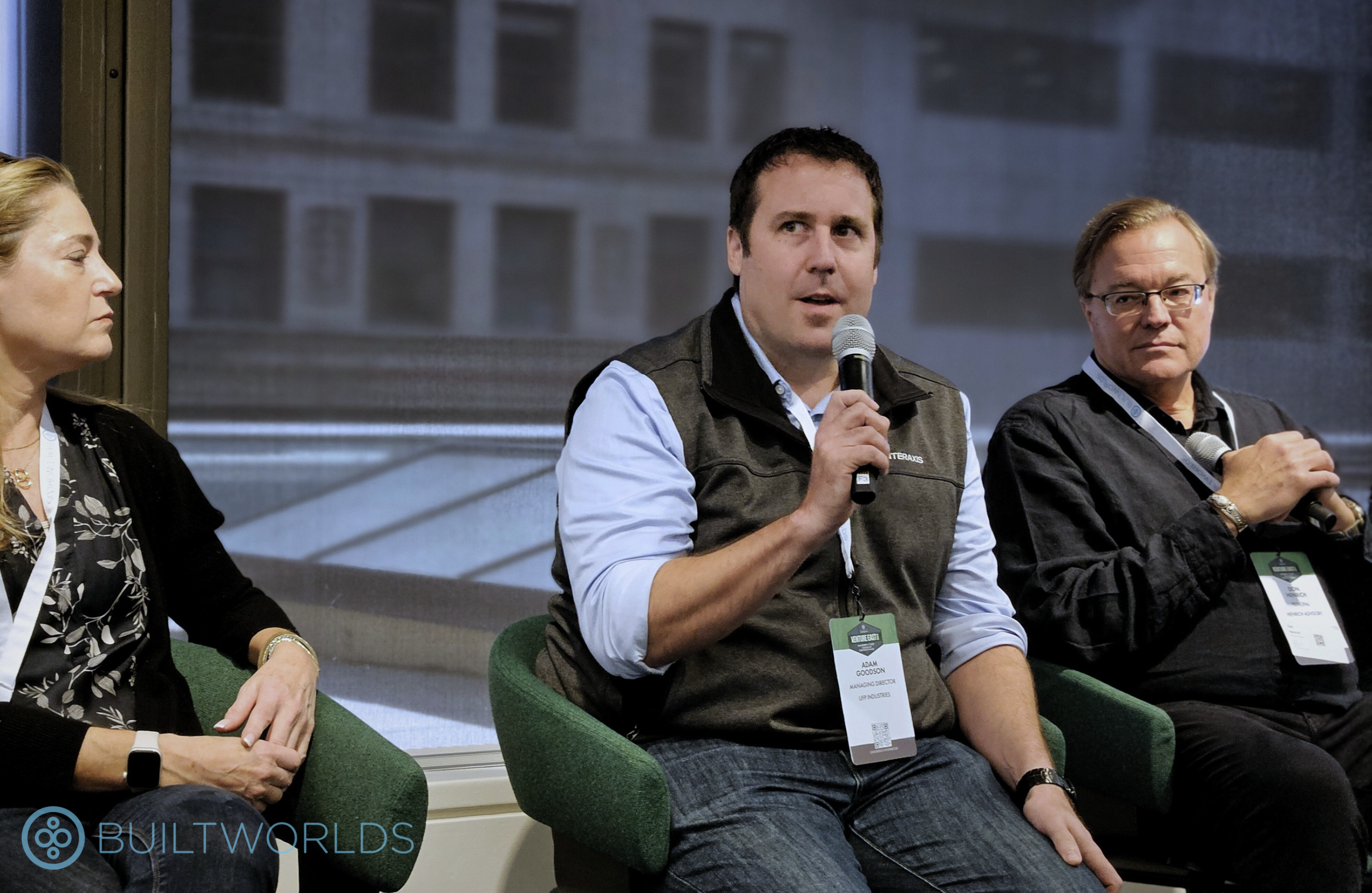
An important part of the venture investment process is understanding the roles and objectives of the various stakeholders throughout the value chain. At our recent Venture East conference in Boston, in a coversation led by BuiltWorlds Venture Research Analyst Cameron Mabley, experts Adam Goodson, Managing Director, UFP Industries, Dina Routhier, President, Stanley Ventures, Austin Yount, Principal, Brick & Mortar Ventures, and Donald Henrich, Principal, Henrich Advisory, captivated the audience in a valuable discussion on that very subject.
Below are three key takeaways from their conversation.
Strategic vs Financial Motivators
It is crucial for startups to understand the motivations behind their investors. As a CVC for a large company, Stanley Ventures is able to prioritize strategic goals. Obviously, these investments must still ultimately drive revenue, but given the scale of their operations there is room to put strategic aims at the forefront. For UFP Ventures, financial return is the top priority, but investments are made with a strategic eye on the company’s current operations and future trajectory. The focus extends beyond immediate business unit needs. Institutional VCs like Brick & Mortar emphasize maximizing returns for LPs while solving industry challenges. This often involves investing in disruptive technologies that can ultimately end up challenging LPs. Entrepreneurs should carefully evaluate the alignment of investor motivations with their business goals.

Misconceptions About Corporate Behavior
The speakers made clear that concerns about corporates stealing ideas are often overstated. Corporate investors generally value the entrepreneurial spirit and first-mover advantage of startups, making outright idea theft counterproductive. As Goodson said, “man, I could take five engineers and $10 million from the parent company and work around your patents in two years. I am investing in you because first mover advantage and that entrepreneurial spirit.” Panelists claimed bad corporate behavior more commonly arises unintentionally, such as misaligned incentives or premature integration of a startup into a larger business unit. Entrepreneurs should negotiate terms carefully to protect their interests.

Early Signals in Partnerships
This panel emphasized the importance of aligning motivations, negotiating balanced terms, and understanding the unique value each investor type can bring to a startup’s journey. Both entrepreneurs and investors benefit from transparency, trust, and a clear strategic fit. Entrepreneurs should pay close attention to early discussions and term sheets, as they reveal much about the corporate partner’s motivations and flexibility. From the entrepreneur perspective, Henrich highlights that startups should seek patient institutional investors willing to actively support their growth journey. Entrepreneurs should avoid terms that hinder long-term growth, such as restrictive rights of first refusal or unlimited exclusivity. Routhier recommends that entrepreneurs consider time-bound exclusivity agreements tied to performance metrics, ensuring mutual accountability. Throughout the discussion, Yount highlighted that corporates can be a force multiplier. Because they area a multiplier, a startup might have to agree to certain things, but what’s most important is understanding what those conditions mean. Entrepreneurs should be prepared to align with corporate incentives but understand the implications of terms in the agreement.



Discussion
Be the first to leave a comment.
You must be a member of the BuiltWorlds community to join the discussion.